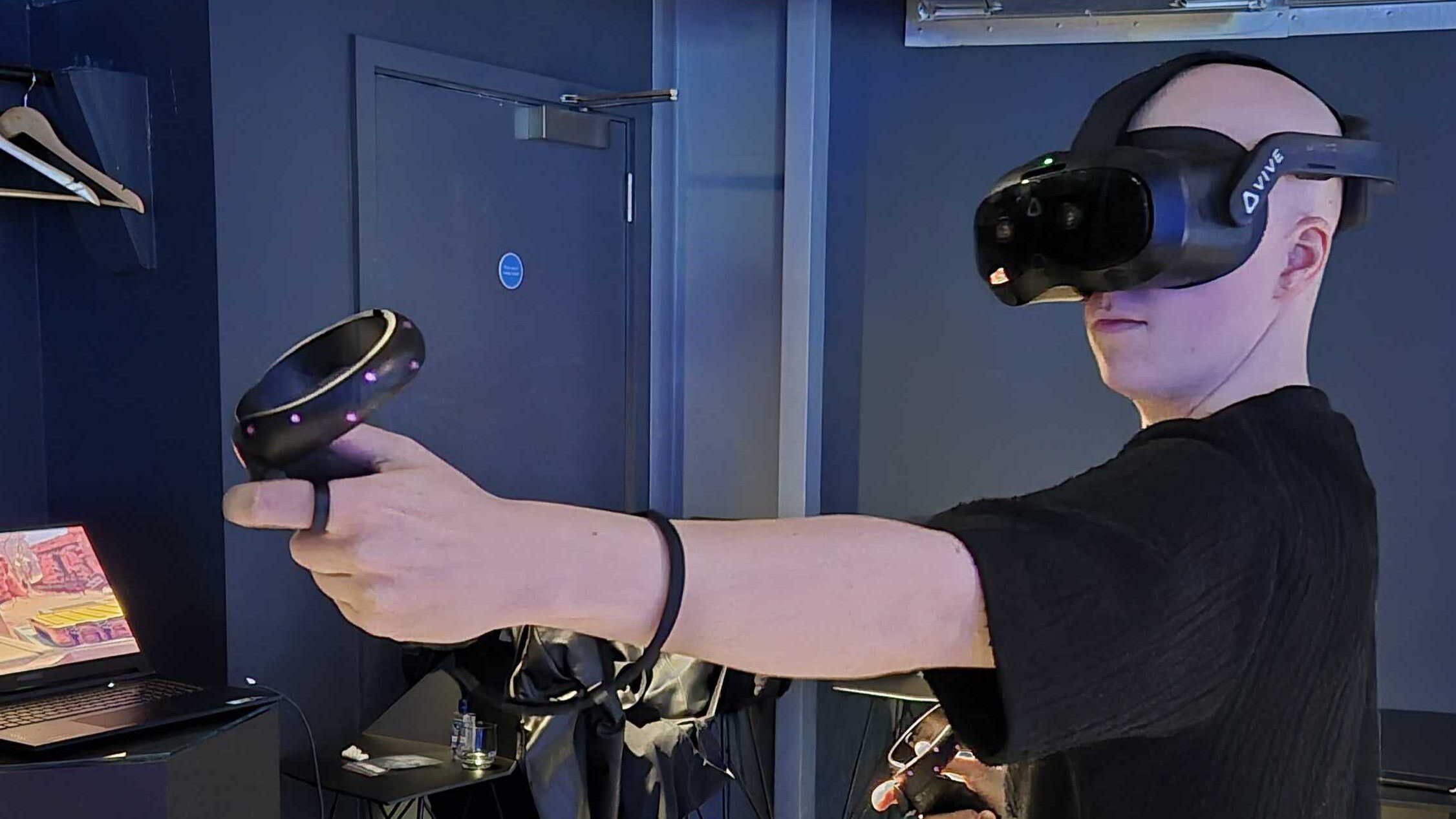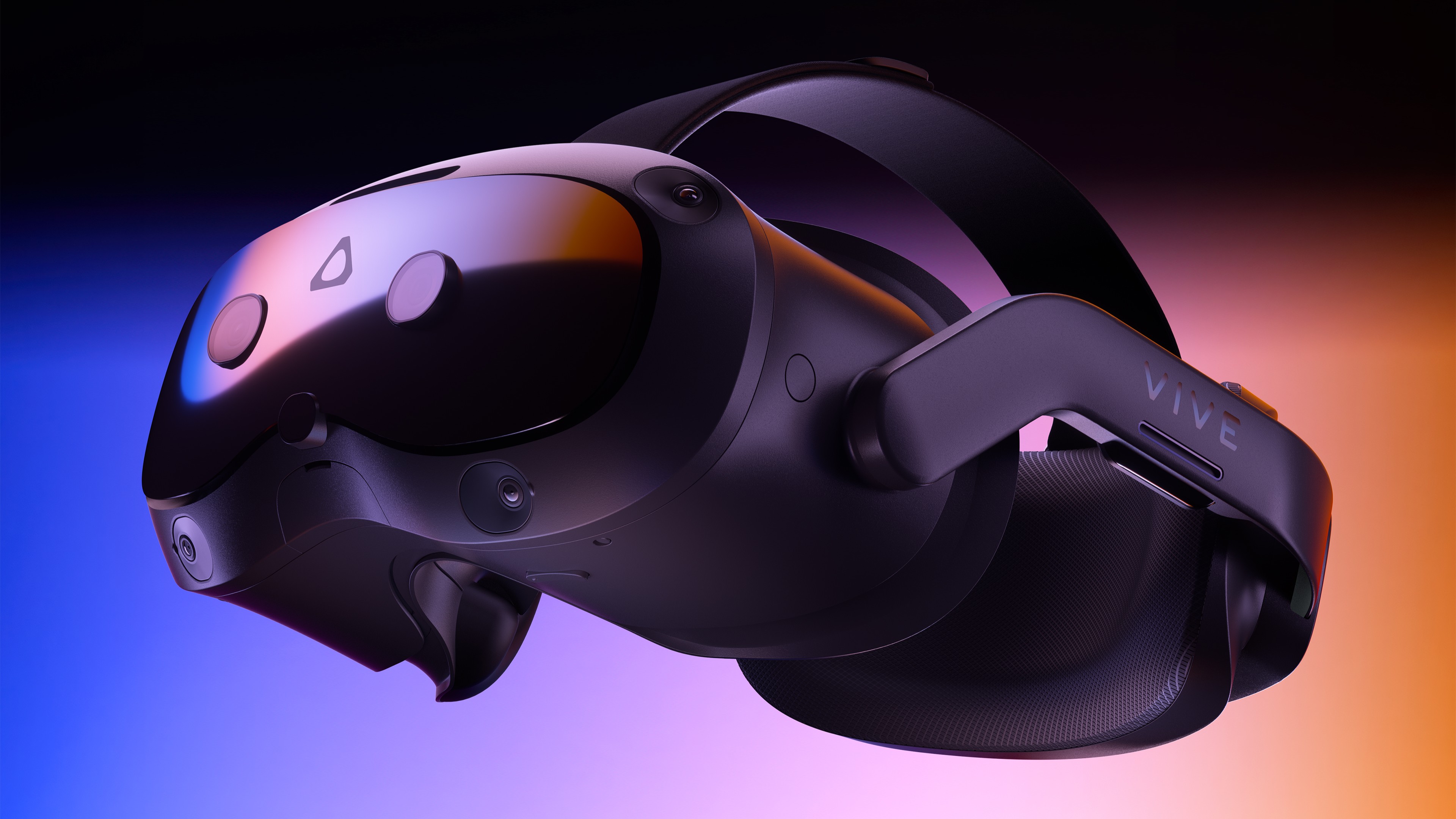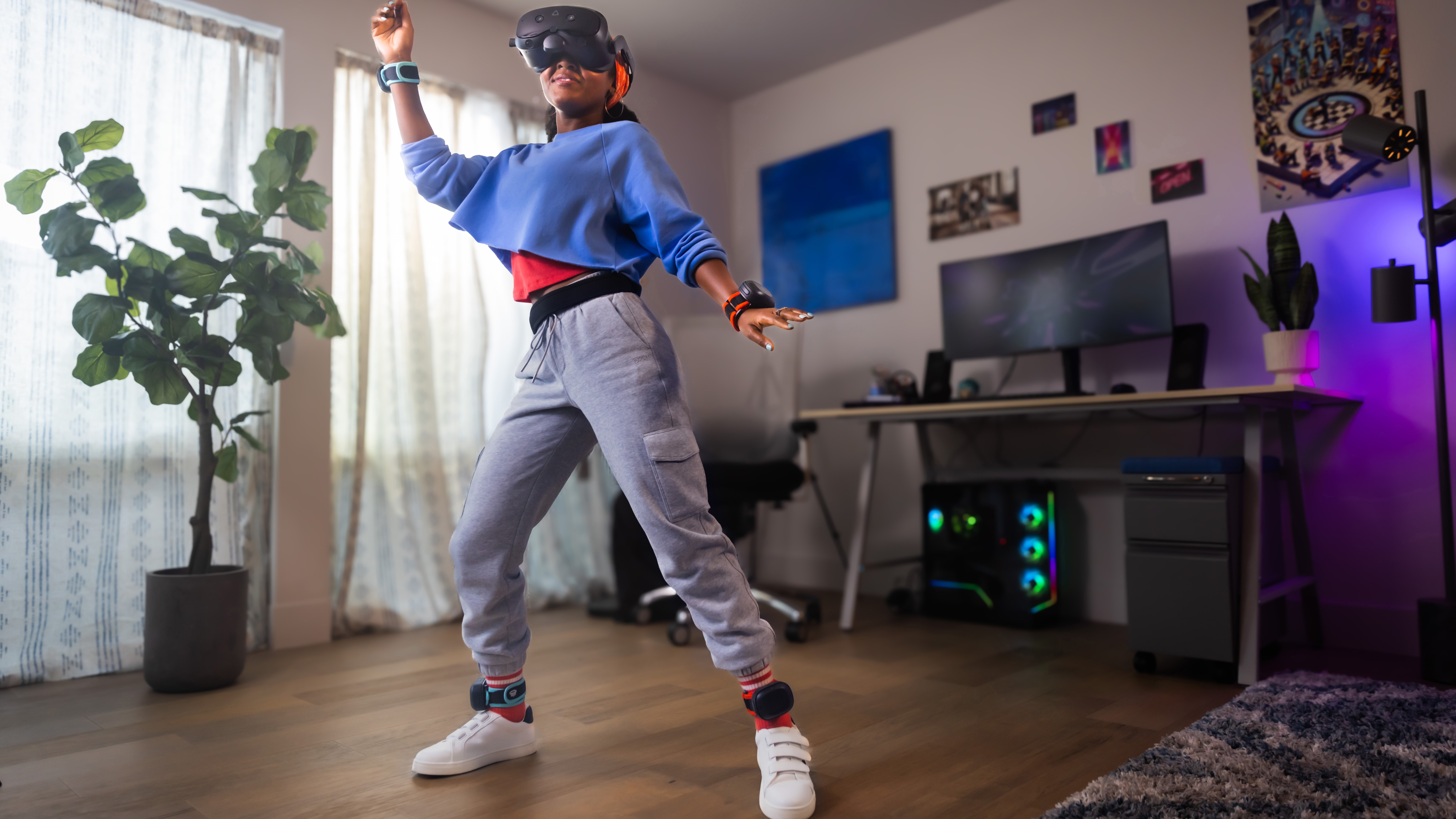I tested the new Vive Focus Vision by winning Squid Game in VR, and risking getting my driver's license revoked
I am not great at PCVR racing sims it turns out...

Following its recent announcement I finally got to try the Vive Focus Vision headset from HTC, and based on this early preview I’m excited to see more of what this headset has in store when it launches on October 18.
First up, I and four other players slipped on the headset and were dropped into Sandbox VR’s Squid Game experience. Before the trials even began, we got a taste of one convenience the headset affords – automatic IPD adjustments thanks to its eye tracking. This meant my vision wasn’t blurred because I hadn’t adjusted the lenses properly, and another helpful feature was the headset slipped comfortably over my glasses. So, this isn’t one of those headsets that forces you to buy custom lenses to use it.
Eye-tracking can also be used to facilitate foveated rendering. However, this is a feature software developers have to implement into their games and apps to take advantage of this eye-tracking benefit. Foveated rendering allows for more ambitious VR games from less powerful hardware, as the headset only needs to fully render what you’re looking at rather than everything at once.

After defeating the Squid Game competition and continuing my competitive VR winning streak, my enlarged ego was given a reality check when I hopped into a PCVR racing sim demo.
The immersive setup was complete with a paired racing wheel and pedals, but my abilities made me question if I should be allowed to drive a real car. I crashed so many times – driving head first into walls and bumping off my racing rivals – and was generally a menace (describing my destructive driving as being like the blue shell the game wouldn’t give me).
After a few laps, I rewarded myself with Arizona Sunshine 2 – specifically its horde mode – in which I took my frustrations out on wave after wave of zombies.
These two titles gave me a taste of a typical Vive Focus Vision PCVR experience, and I thoroughly enjoyed it. Compared to my experience playing Arizona Sunshine 2 on the Pico 4 Ultra, the Focus Vision version of the game seemed like a big step up for both performance and visuals – thanks to the headset being able to rely on the PC’s power for running the game.
Get daily insight, inspiration and deals in your inbox
Sign up for breaking news, reviews, opinion, top tech deals, and more.
I also got a taste of what the Vive Focus' DisplayPort mode is capable of. I only tested a non-final version of the feature, but the idea is that this alternative to, say, PCVR using a Meta Quest 3 and a Link Cable is a lossless experience – so you’ll get the best possible PCVR visuals your setup can produce rather than being held back by a poor connection.
Even for something non-final, what I saw looked solid, but I’ll want to test it again to get a true measure of what the DisplayPort means for the Vive Focus Vision. Just remember that you’ll need a decently beefy PC to output high-end VR visuals – as the dual 2448 x 2448 pixel per eye displays means to get the most out of the headset, you’ll want to render a 5K-quality image – and HTC’s DisplayPort kit to enjoy it for yourself (though the kit is included for free as a preorder bonus).

More to see
Beyond testing PCVR further, I’ll also need to try two key features of the Vive Focus Vision that I haven’t yet: mixed reality and its standalone capabilities.
Mixed reality wise, I’m excited to see how the Vive Focus Vision holds up. I was a big fan of the passthrough quality of the Vive XR Elite when I tested it last year, so hopefully the Focus Vision has only made things better.
The Vive XR Elite headset didn’t fare so well in my eyes on the standalone software front, however – mostly because I’m used to Meta spoiling players with its excellent Horizon OS on its Quest headsets. Though I’m cautiously optimistic, I haven’t used an HTC headset since publishing my review back in April 2023. Further, after recently testing the Pico 4 Ultra and seeing the major improvements it received in its software support compared to the Pico 4 I’m hoping HTC has been able to achieve the same.
As always for our full verdict you’ll have to keep an eye out for our review of the Vive Focus Vision when we get the chance to test it out properly.
You might also like

Hamish is a Senior Staff Writer for TechRadar and you’ll see his name appearing on articles across nearly every topic on the site from smart home deals to speaker reviews to graphics card news and everything in between. He uses his broad range of knowledge to help explain the latest gadgets and if they’re a must-buy or a fad fueled by hype. Though his specialty is writing about everything going on in the world of virtual reality and augmented reality.